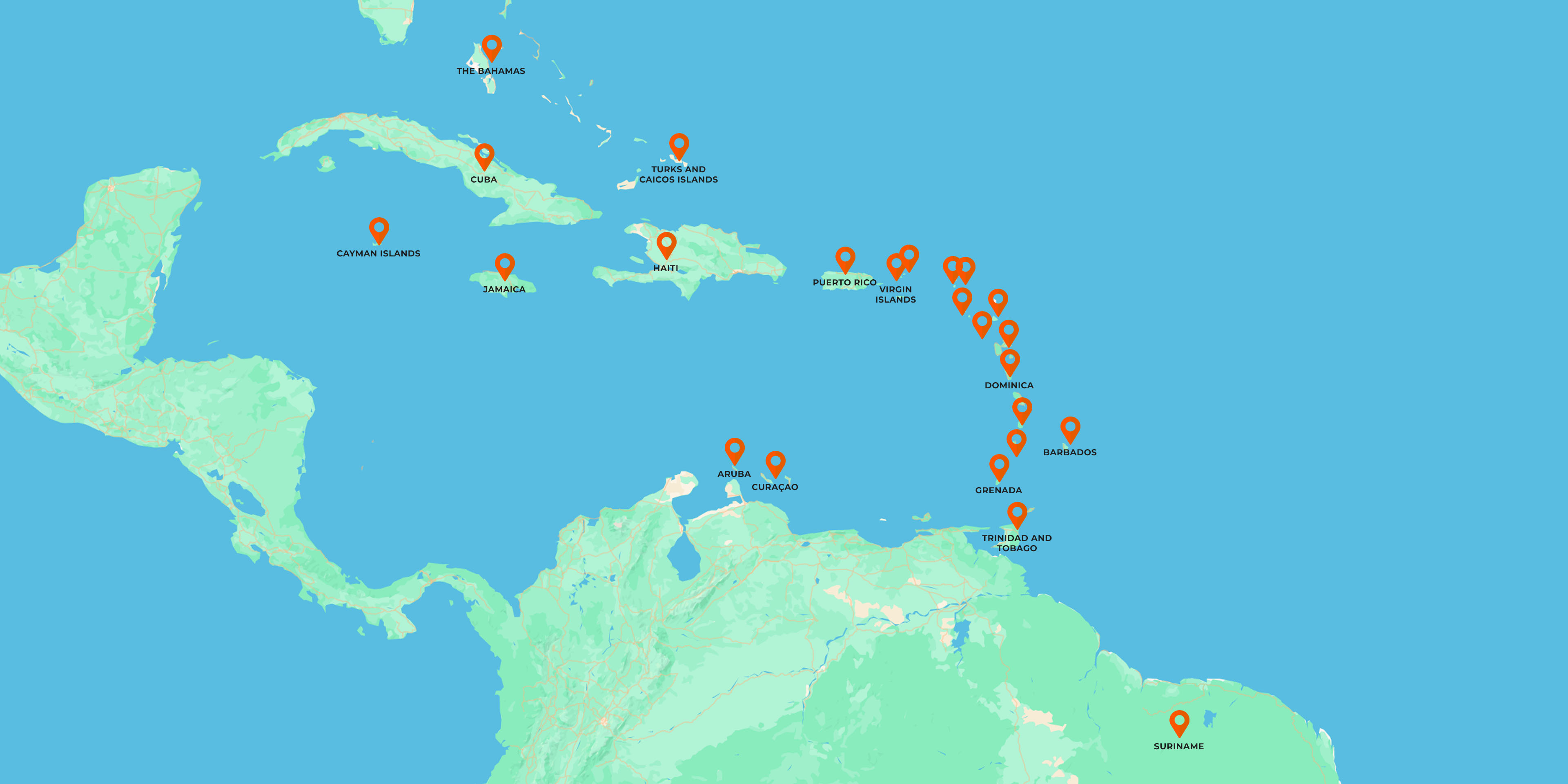It’s essential to know what travel vaccinations are required for a trip to the Caribbean and ensuring you have the right information is crucial for a safe and enjoyable trip.
Whilst an incredible place to travel to, the Caribbean does have some health risks, which depends on the specific island or islands you're visiting. It’s also key to consider that travel vaccinations not only protect your health, but also contribute to the well-being of local communities.
Prior to your departure, consult with MK Travel Centre about the recommended immunisations, such as those for Hepatitis A, Hepatitis B, Typhoid and Tetanus. Don't forget to check for any travel advisories or specific requirements for the islands on your itinerary. Protect yourself and make your travel experience worry and stress-free!
Things to consider prior to a Caribbean holiday:
Consult MK Travel Centre first
Always seek professional advice before traveling, and we’ll advise on what you need and when.
Recommended Vaccinations
The most common vaccinations for the Caribbean include Hepatitis A, Hepatitis B, Typhoid, and Tetanus.
Specific Island Risks
Remember the health risks can vary by island; different Caribbean islands may require different jabs.
Plan Ahead
Ensure vaccinations are completed before you travel.
Caribbean Locations that you may need vaccinations for before you visit:

Diseases, viruses, and infections of the Caribbean:
Hepatitis A & B
The Hepatitis A vaccine is given via 2 doses in a 6-month period (or more). Immunity builds approximately 2-4 weeks following the initial dose, solidified by the second dose. Once the immunisation programme is complete, protection should last for a minimum of 25 years. The Hepatitis B vaccination consists of 3-4 injections during a 2-6 month timeframe, but this can be accelerated to 3 weeks with a booster jab one year following. Be sure to get vaccinated at least 4 to 6 weeks before travelling to ensure immunity.
Cholera
The Cholera vaccine does change over time, and we can advise on the current recommendation for travellers from the UK. The vaccine is given orally in two doses: the first dose should be taken up to six weeks before departure, while the second dose must be taken at least one week prior to travel. Protection begins one week after immunisation and is effective in up to 85% of cholera cases and 25% of cases of travellers' diarrhoea.
Rabies
The rabies vaccination is given in three doses within 28 days, which can be expedited to 21 or 7 days if needed quickly. After one year, a booster jab may be advised if travelling. Aim to have your first immunisation 5 weeks before travel to ensure strong protection against rabies.
Typhoid
The typhoid vaccination protects against typhoid, otherwise known as typhoid fever. This immunisation can be given in two different ways:
Vi vaccine course is administered via 1 injection
Ty21a vaccine is completed by taking 3 capsules on alternate days
It is advised that the immunisation takes place a minimum of 1 month before travel, but it can be given closer to your travel date if required. Boosters can be given 3 years following the initial course. Here at MK Travel Clinic, we can advise on the best vaccine option for you.
Yellow Fever
The Yellow Fever vaccine protects against Yellow Fever, a serious viral infection transmitted by mosquitoes. Administered via a single injection, it provides immunity in 95% of recipients. Many countries require proof of vaccination for entry, especially if travelling from endemic areas. Side effects are usually mild, such as soreness at the injection site. The vaccine is recommended for travellers to affected regions and those working in high-risk environments.